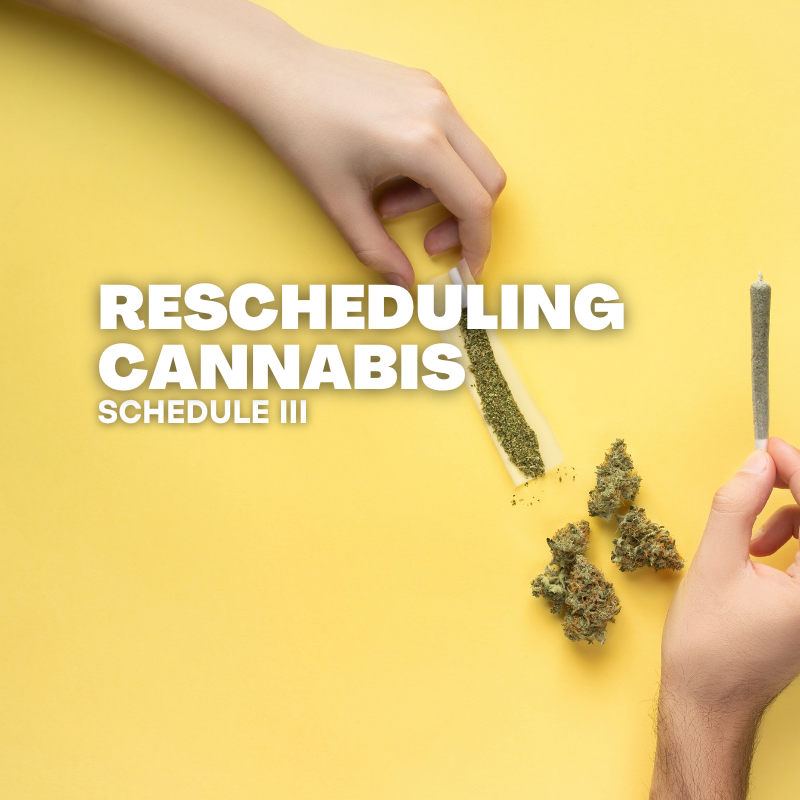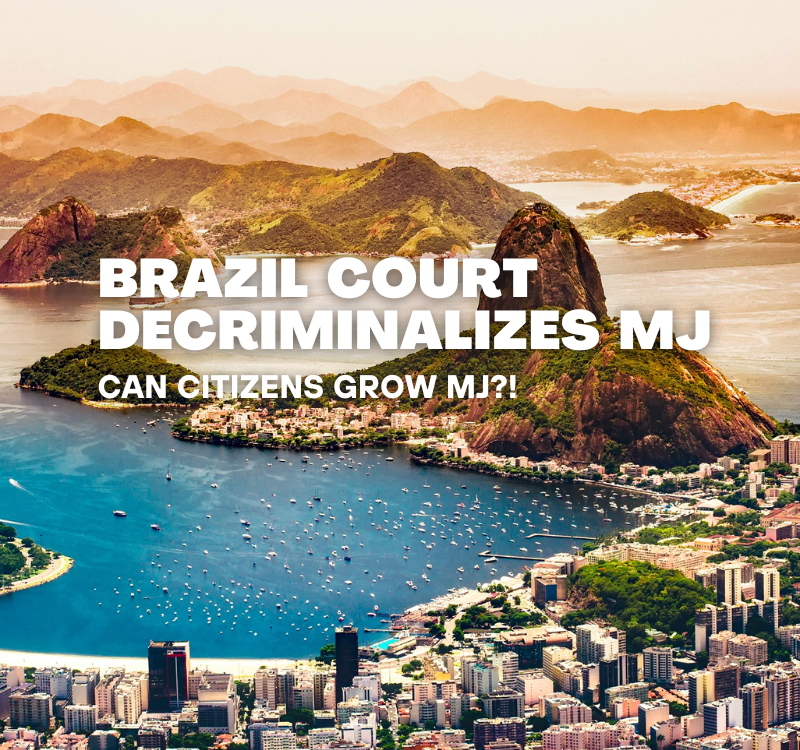As the cannabis industry continues to evolve, the potential implications of rescheduling marijuana have become a topic of great interest and speculation. In recent years, there has been a shift in public opinion and growing recognition of the medical benefits of cannabis. The question now arises – what would happen if marijuana were to be rescheduled?
In this article, we will explore the potential future of cannabis and delve into the implications of rescheduling. From a brand voice perspective, we will analyze how this change could affect the industry, consumer behavior, and the economy. We’ll also examine the potential impact on legalization efforts and the medical and recreational cannabis markets.
By understanding the potential implications of rescheduling marijuana, stakeholders in the cannabis industry will be better equipped to navigate the changing landscape and adapt their strategies accordingly.
Whether you are a cannabis business owner, a policy maker, or simply curious about the future of marijuana, this article will provide you with valuable insights into the potential ramifications of rescheduling cannabis. So, let’s dive in and explore the exciting possibilities that lie ahead.
The current status of marijuana legalization
Marijuana’s legal status has been a topic of debate and contention for many years. Currently, marijuana is classified as a Schedule I drug under the Controlled Substances Act, meaning it is considered to have a high potential for abuse and no accepted medical use. This classification has hindered research into the medical benefits of cannabis and created legal barriers for those seeking to use marijuana for medicinal purposes.
However, in recent years, there has been a wave of change as more states and countries have legalized marijuana for medical and/or recreational use. As of now, over half of the United States has legalized marijuana in some form, either for medical or recreational purposes. Additionally, several countries, including Canada and Uruguay, have legalized marijuana for recreational use.
This shifting landscape has led to increased public acceptance of cannabis and a growing recognition of its potential medical benefits. As a result, the question of whether marijuana should be rescheduled has gained traction and become a topic of intense discussion.
What is rescheduling marijuana
Rescheduling marijuana refers to the process of changing the classification of marijuana under the Controlled Substances Act. Currently, as mentioned earlier, marijuana is classified as a Schedule I drug, which means it is considered to have a high potential for abuse and no accepted medical use. Rescheduling would involve reclassifying marijuana to a different schedule, potentially allowing for greater access, research, and regulation.
There are five schedules under the Controlled Substances Act, with Schedule I being the most restrictive and Schedule V being the least restrictive. Rescheduling marijuana would mean moving it to a different schedule that reflects a more accurate assessment of its potential risks and benefits.
To fully appreciate the significance of this decision, it’s crucial to grasp the scheduling system established by the CSA in 1970. Drugs are categorized into five schedules based on their perceived potential for abuse and accepted medical utility:
- Schedule I: Reserved for substances with a high potential for abuse and no recognized medical use (e.g., heroin, LSD, ecstasy).
- Schedule II: Designated for drugs with a high potential for abuse but acknowledged medical applications (e.g., cocaine, methamphetamine, opioids).
- Schedule III: Allocated for substances with a moderate to low potential for physical and psychological dependence and recognized medical uses (e.g., ketamine, anabolic steroids, certain opioids).
- Schedule IV: Assigned to drugs with a low potential for abuse and accepted medical applications (e.g., Xanax, Valium, Ambien).
- Schedule V: Applied to substances containing limited quantities of certain narcotics used for medical purposes (e.g., cough syrups with codeine).
Despite mounting evidence of its therapeutic benefits, cannabis has languished in Schedule I alongside substances like heroin and MDMA. However, the decision to reclassify cannabis as Schedule III signifies a growing acknowledgment of its medicinal value and a willingness to explore its potential within a regulated framework.
The implications of rescheduling marijuana
Economic implications of rescheduling marijuana
Rescheduling marijuana could have significant economic implications. Currently, the cannabis industry is thriving despite the legal and regulatory hurdles it faces. However, rescheduling marijuana could open up new opportunities for businesses and investors.
One potential economic benefit of rescheduling marijuana is increased tax revenue. Legalizing and regulating marijuana allows governments to collect taxes on its sale, similar to how taxes are collected on alcohol and tobacco. This additional revenue could be used to fund public services and infrastructure projects, benefiting the overall economy.
Rescheduling marijuana could also lead to the creation of new jobs. The cannabis industry has already created thousands of jobs in states where marijuana is legal, and rescheduling could further stimulate job growth. This could have a positive impact on local economies and provide new employment opportunities for individuals in need.
Medical implications of rescheduling marijuana
Rescheduling marijuana could have significant implications for medical research and patient access. Currently, the Schedule I classification of marijuana makes it difficult for researchers to conduct studies on its potential medical benefits. Rescheduling could remove some of the barriers to research, allowing scientists to explore the full therapeutic potential of cannabis.
Additionally, rescheduling could lead to increased patient access to medical marijuana. Currently, patients who could benefit from cannabis-based treatments often face legal barriers and limited availability. Rescheduling could make it easier for patients to obtain medical marijuana, potentially improving their quality of life and providing relief for a wide range of medical conditions.
Social implications of rescheduling marijuana
The social implications of rescheduling marijuana are complex and multifaceted. On one hand, rescheduling could lead to a reduction in arrests and incarceration rates related to marijuana offenses. The current criminalization of marijuana has disproportionately affected marginalized communities and contributed to the perpetuation of systemic inequalities. Rescheduling could help address these issues and promote social justice.
On the other hand, there are concerns about the potential normalization and increased use of marijuana if it were to be rescheduled. Critics argue that easier access to marijuana could lead to increased rates of addiction and negative social consequences. It is important to strike a balance between promoting access to marijuana for medical and recreational purposes while ensuring appropriate regulation and education to mitigate potential risks.
Legal implications of rescheduling marijuana
Rescheduling marijuana would have significant legal implications. Currently, the federal government considers marijuana illegal, regardless of state laws. This creates a conflict between federal and state regulations, leading to confusion and legal challenges.
Rescheduling marijuana could help resolve this conflict by providing a clearer legal framework. It could allow states to regulate and tax marijuana without fear of federal intervention, similar to how alcohol and tobacco are regulated. This would provide greater clarity for businesses operating in the cannabis industry and help foster a more stable and predictable legal environment.
Public opinion on rescheduling marijuana
Public opinion on the rescheduling of marijuana has been shifting in recent years. According to various polls, a majority of Americans now support the legalization of marijuana for both medical and recreational use. This growing acceptance reflects a changing perception of marijuana and a recognition of its potential benefits.
However, there are still those who oppose the rescheduling of marijuana. Some argue that it remains a dangerous drug with potential health risks, while others have concerns about the impact on youth and public safety. It is important to consider these differing perspectives and engage in informed and respectful dialogue to shape policies that reflect the best interests of society as a whole.
The potential future of marijuana legalization
The potential future of marijuana legalization is both exciting and uncertain. While the rescheduling of marijuana could lead to greater acceptance and access, there are still many challenges that need to be addressed. These challenges include regulatory frameworks, public education, and responsible use guidelines.
One possible future scenario is the continued expansion of legal marijuana markets. As more states and countries legalize marijuana, the industry is likely to experience significant growth. This growth could lead to increased investment, innovation, and job creation, further solidifying cannabis as a legitimate and lucrative industry.
Another possible future scenario is the development of more targeted and specialized cannabis-based treatments. As research into the medical benefits of marijuana progresses, we may see the emergence of new pharmaceuticals and therapies that harness the therapeutic potential of cannabis. This could revolutionize healthcare and provide new treatment options for a wide range of conditions.
However, it is important to approach the future of marijuana legalization with caution and careful consideration. While there are many potential benefits, there are also risks and challenges that need to be addressed. Responsible regulation, education, and public health initiatives will be crucial to ensure that the benefits of marijuana legalization are maximized while minimizing potential harms.
Conclusion: The impact of rescheduling marijuana on society
In conclusion, the potential implications of rescheduling marijuana are vast and far-reaching. From economic benefits to improved patient access and social justice, rescheduling has the potential to reshape the cannabis industry and society as a whole. However, it is important to approach the process with careful consideration and a commitment to responsible regulation.
By understanding the potential future of marijuana legalization and the implications of rescheduling, stakeholders in the cannabis industry can better navigate the changing landscape and adapt their strategies accordingly. Whether you are a cannabis business owner, a policy maker, or simply curious about the future of marijuana, it is important to stay informed and engaged in the ongoing discussions surrounding cannabis legalization.
The future of cannabis is still unfolding, and the decisions made today will shape the industry for years to come. By embracing evidence-based approaches, fostering dialogue, and prioritizing the well-being of individuals and communities, we can create a future where marijuana is responsibly regulated, accessible for those who need it, and a source of economic growth and social progress.
The rescheduling of cannabis to Schedule III represents a watershed moment in the ongoing evolution of marijuana policy in the United States. By acknowledging its potential therapeutic value and providing a regulatory framework for its medical use, this decision has the potential to enhance patient care, drive scientific innovation, and reshape the cannabis landscape for years to come.
However, it also raises important questions about the balance between access and regulation, the role of federal versus state authority, and the broader implications for drug policy reform. As we navigate these complexities, one thing remains clear: the rescheduling of cannabis marks a pivotal juncture in the journey toward a more rational, evidence-based approach to marijuana regulation.






